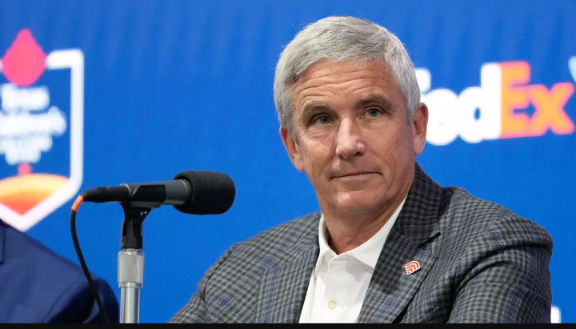The PGA Tour Champions, historically reserved for golfers aged 50 and above, finds itself at a crossroads as discussions intensify over potentially lowering the age threshold. Established in 1980, the senior tour has always required players to be at least 50 years old to participate. However, evolving dynamics in the sport and shifting audience demographics have fueled debates on whether this age limit should be revised.
**Advocates for Change**
Proponents of lowering the age limit argue that it could rejuvenate the tour by attracting younger fans and offering more opportunities for talented golfers who may not have had illustrious careers on the regular PGA Tour. This demographic includes players who, despite not achieving widespread success, possess the skill and determination to compete at a high level.
One such advocate is Steve Stricker, a prominent figure on the Champions Tour. Stricker, who topped the earnings list with nearly $4 million last season, believes that lowering the age to 47 could be beneficial, especially with iconic golfer Tiger Woods approaching that age. “Wouldn’t 47 be a great time with Tiger about to turn 47 shortly?” Stricker remarked. He sees potential for a significant boost to the tour’s profile and competitiveness by attracting star players who are just shy of 50.
**Arguments for Tradition**
In contrast, golf purists maintain that the 50-year-old threshold upholds a clear and consistent standard for eligibility. They argue that lowering the age could create an uneven playing field, forcing newly eligible 50-year-old players to compete against significantly younger counterparts who should still be vying for success on the regular PGA Tour.
Carl Pettersson, a former PGA Tour player now 46, exemplifies this perspective. After a wrist injury in 2016 derailed his career, Pettersson, who had once been a top 25 player globally, sees the Champions Tour as a vital opportunity to continue competing. He eagerly awaits turning 50, saying, “I’d like to make a run on the Champions Tour in a few years.”
**Tour Leadership’s Stand**
PGA Tour Commissioner Jay Monahan and other officials remain steadfast in their commitment to the current age limit. James Hahn, a policy board member, echoed this sentiment, emphasizing the importance of maintaining the tour’s integrity. “We don’t want PGA Tour rejects,” Hahn said. “If you’re still competitive on the PGA Tour in your late 40s and have status, why would you want to play on the Champions Tour?”
As the debate continues, the PGA Tour Champions faces a pivotal decision that will shape its future and potentially redefine the landscape of senior professional golf. Whether to uphold tradition or embrace change remains a contentious issue, reflecting broader conversations about the evolution of sports and entertainment.
